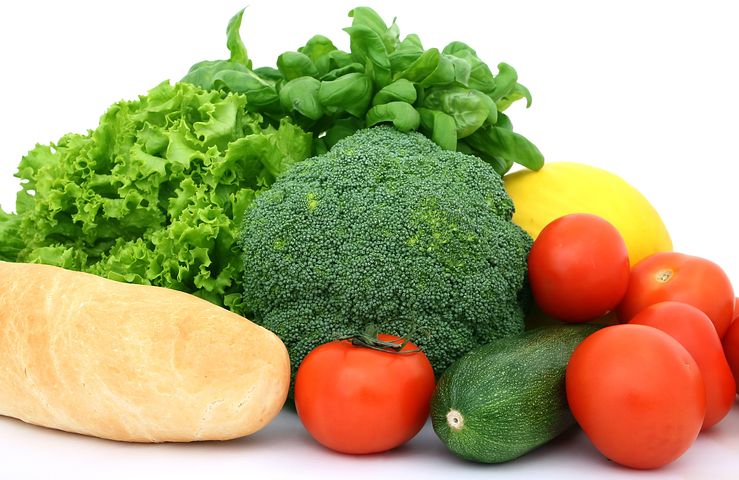Phytochemicals and antioxidants: what are they and what’s the difference?
- Phytochemical: refers to plants (phyto) and the chemical compounds in them. We may also refer to them as phytonutrients.
- Antioxidants are substances that help prevent cells from damage from unstable molecules known as “free radicals”.
- Not all antioxidants are phytochemicals and not all phytochemicals are antioxidants.
- How we prepare and eat plant foods can maximize our intake of these healthful compounds.
Does cooking reduce the amount of nutrients in fruits and vegetables?
YES, and NO – vitamin C is sensitive to heat, whereas beta-carotene from carotenoids may be more available for absorption when cooked. The key is to include both cooked and raw plant foods daily.

- Salads with a mix of cooked vegetables (try roasting root vegetables, sweet potatoes, winter squash, cauliflower or Brussels sprouts, and onions) and raw vegetables (lettuce, arugula, radishes, celery, tomato, and spinach) – what a delicious way to reap the benefits of a wide variety of phytochemicals, vitamins, minerals and fiber.
- Lycopene, a phytochemical found in bright red fruits and vegetables – tomatoes, pomegranates, watermelon are a few foods that contain this phytochemical. Men who eat cooked tomato products frequently appear to have lower risk for prostate cancer than men who rarely eat cooked tomato products. Cooking tomatoes concentrates the lycopene. However, raw tomatoes are a good source of vitamin C, which is another anti-oxidant. Cooking destroys vitamin C.
- Carotenoids, another group of phytochemicals, can be considered antioxidants. Foods that contain carotenoids often have an orange color which may become more vivid when cooked. However, carotenoids are also found abundantly in leafy green vegetables. Beta-carotene is the anti-oxidant associated with carotenoids, and this is a fat-soluble vitamin. It may be better absorbed when cooked with a small amount of fat to help enhance absorption.
- Sulforaphanes are an important group of phytochemicals found in the brassica family (also known as cruciferous vegetables). This important phytochemical is sensitive to heat and the enzyme which activates these potent phytochemicals is inactivated by heat. Some folks do not tolerate some of the members of the brassica family in the raw state (for instance, broccoli, Brussels sprouts, kale, and collard greens). However, adding some plain mustard seeds after lightly steaming these vegetables will help reactivate that sensitive enzyme thereby allowing the sulforaphanes to be available.
Another tip to making some of these plant foods more digestible in the raw form is to add small amounts of raw kale or collard greens to smoothies (about a handful). This will break them down into a liquid form that may be easier to digest.
Try this technique to break down the tough fibers in kale and turn it into a delicious salad: using clean kitchen scissors or your hands, cut or tear kale into small pieces. Place the kale into a bowl and sprinkle a little salt, a squeeze of fresh lemon juice and a drizzle of extra virgin olive oil. Using your very clean hands, massage the kale until it starts to become soft and releases some juices. Let this kale mixture sit a few minutes and then mix it into a green salad, or add it to a sandwich instead of lettuce.
Brussels sprouts can be sliced very thinly and added to salads or used in place of cabbage when making cole slaw. Look in the produce section of your grocery store for “shaved Brussels sprouts” if you want to save some time in the kitchen.
**Please note that sprouts (broccoli sprouts, alfalfa sprouts, raw mung bean sprouts, sunflower seed sprouts) should NOT be eaten raw as they make contain bacteria which can cause a serious case of foodborne illness.
Audrey Caspar-Clark MS, RD, LDN received her M.A. in Nutrition Education from Immaculata University in 2009 and her B. S. in Nutrition from Immaculata University in 2000. She holds an active certification as a specialist in oncology nutrition (CSO) and works as an out-patient oncology dietitian at the Hospital of the University of Pennsylvania and the Abramson Cancer Center, a large urban cancer center treating upwards of 6000 patients yearly. She is a frequent provider of nutrition related education at oncology conferences, patient support groups, and community health programs; as well as providing educational sessions for staff. Some of her interests include cooking and preserving foods, sustainable agriculture, equity in health care and food distribution, and animal welfare.